
Tracking Down Mario Levi
"My luggage has been checked. He smelled everything and rummaged around. In shirts, trousers, handkerchiefs. They were looking for lace and jewelry. Even for banned books. Idiots looking for you in your suitcase! You won´t discover anything here! The contraband traveling with me. I stuck it in my head. And there are a lot of books in my head! I assure you. My head is a chirping bird´s nest. From the confiscated books." Heinrich Heine / Germany. "A Winter´s Tale"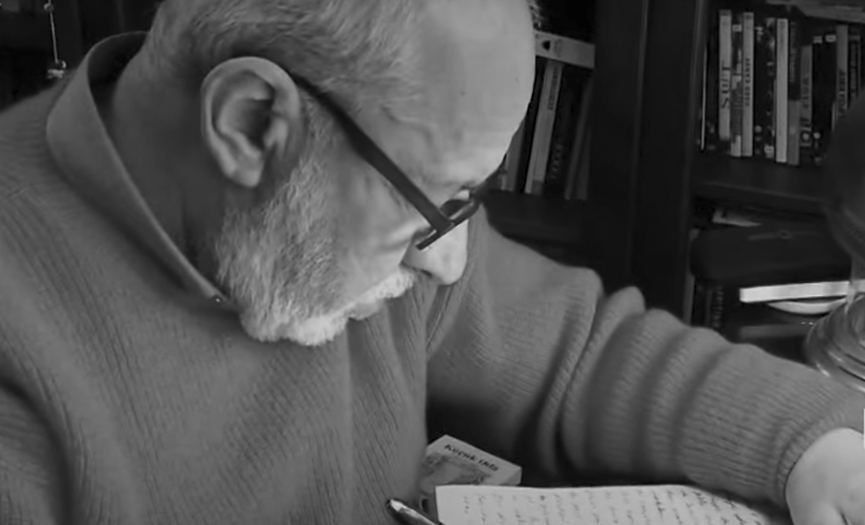
My acquaintance with Jewish Culture and the Holocaust Nightmare
It all started the morning I saw the antique-vintage cover design of the novel "Istanbul Was a Fairy Tale", the first edition of which was published by Remzi Kitabevi in 1999, swaying delicately on my desk at DÜNYA Newspaper, where I worked as the editor of a magazine, waiting for me. Istanbul was in the title of the book, the author's name was Mario Levi, an author I had not met yet, and on the cover, the poet Heinrich Heine was winking with the words "Where books are burned, people are also burned." I was impressed. Istanbul, Mario Levi, and Heinrich Heine walked into my research telescope at the same time that morning on the ninth floor of the DÜNYA Globus Press House's huge building. The works of the poet Heinrich Heine, who was born in Germany as a child of Jewish origin, were banned by the German authorities, he continued to criticize German politics and society from afar, and wrote his work "Deutschland. Ein Wintermärchen" (Germany. A Winter's Tale), in 1844. I learned that his friend Karl Marx published Heinrich Heine's work in the form of articles in the newspaper he owned, and when one of his books was burned, he said: "If they are burning books somewhere, they will eventually burn people there too." Since there is no Turkish translation of the work "Germany, A Winter's Tale", I read it by translating it from the German original. By researching, I deepened my acquaintance with Jewish Culture and the Holocaust Nightmare. I prepared myself to read Mario Levi's novel "Istanbul Was a Fairy Tale" because this was necessary for me to develop empathy with what I read and to understand the author. I prepared my soul for the book. Finally, I met Mario Levi's pen. I read the novel “Istanbul Was a Fairy Tale”. This is the story of how I opened the doors of my mind and imagination to Mario Levi! It is the story of how I read Mario Levi's oeuvre, step by step, and how my literary world evolved yet another step further with each reading. Here it is...
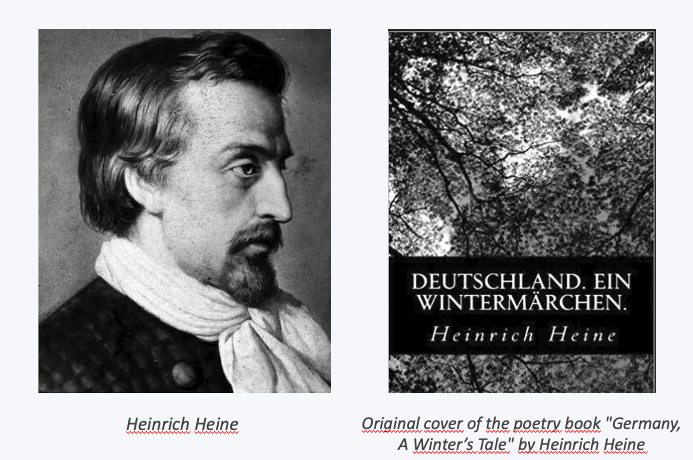
Books were burned, people too...
Heinrich Heine's prediction came true. Books were burned, people too... A hundred years after he wrote his poems, and brutally. Again, they searched for people's belongings in their suitcases, but they did not know that all the jewels were carried in their minds. Germany could not give Heinrich Heine a sense of homeland, so it could only be described with the example of a winter.
He emigrated from Germany. The actors of the tale in Mario Levi's Istanbul are also searching for the countries in their minds along with their own migration. The real actor in the book is Istanbul, with the hopes it creates and destroys.
“Istanbul was a fairy tale” and the words were not always our words
"Those words could have been our nakedness, our rediscovery of ourselves, but we were slowly and insidiously torn away from our 'origin' by those who only wanted to give us their own words."
I first read the novel "Istanbul Was a Fairy Tale". I traced the author's pen between the lines. Mario Levi's Istanbul was a fairy tale, his tale, yes, but it was also the tale of those who felt like strangers in their own city. Author Mario Levi states that this book can be read in several ways and adds: "If you want, you can just read the few pages of 'Starlings' section at the beginning of the book to see what you know again." According to the author, those who make this 'choice' will be considered to have read and 'seen' the book. Author Mario Levi says, "The remaining pages, which contain the stories that still continue with the author, are only for those who are curious about the 'details'" and he says: "Those who wish can proceed through this book from the first page to the last by listening to and hearing the sound of their own steps, by 'skipping' different chapters, or by placing them in a 'different' order of reading and importance." Whichever way you choose, read the novel "Istanbul Was a Fairy Tale", if you haven't read it yet, definitely!
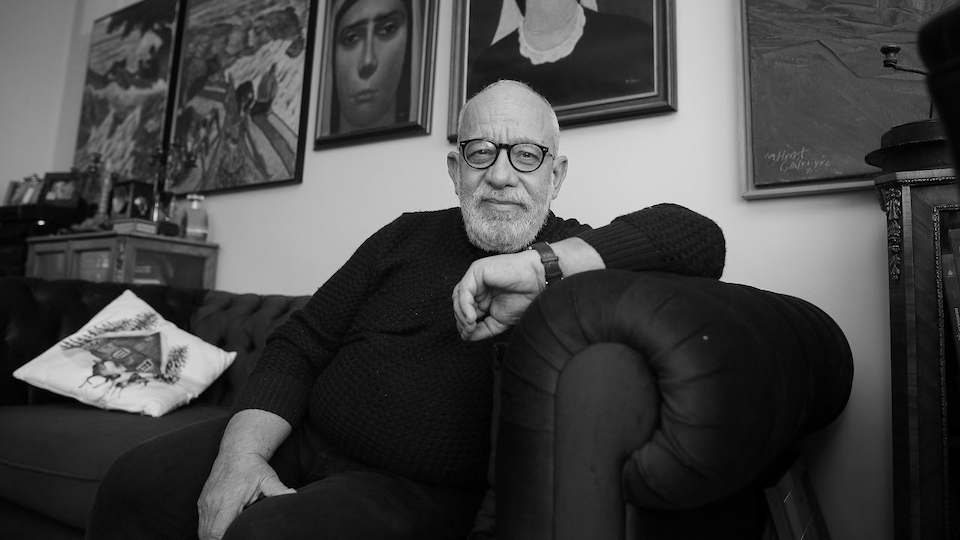
Mario Levi
“Our Most Beautiful Love Story” with the unique magic of music-literature unity
“Because you dream that what you have written will never end and that it will continue in others. This must be partly why I find uncertainty so fascinating. "If you only knew how nice it is to imagine that the book can be carried from one person to another."
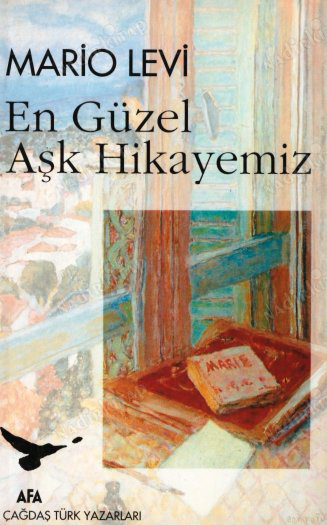
“Our Most Beautiful Love Story” book cover
Going backward in chronological order, I read author Mario Levi's book "Our Most Beautiful Love Story", written in 1992, before his novel "Istanbul Was a Fairy Tale". You will try to solve the problems related to love with the narrator of the memories of a devastated love, and according to the author, these lines allow you to imagine that you may come face to face with a person you do not know, in a text, in a collection of sentences. Step backward or take a step towards yourself, whichever you prefer. "I'm listening to you," he said, and getting hopeful once again despite all the words and time for a brand new story, he said with excitement: "What kind of love is this, let's listen, let's understand, and if necessary, let's try to live together, even if only for a short text."
Rooms may invite rooms, but "Madame Floridis may not return"
“Ah pedimu ah! I'm so tired now," says Madame Floridis, and with these words, she is obviously trying to tell me about increasing through many old memories, unshared storms, or obsolescence in just one story”.
I rewind the past step by step, and then I read the story "Madame Floridis May Not Return", written by Mario Levi in 1991. Are you ready to surf the festival of sentences where you will feel nostalgic for the past with the past tense characters and feel loneliness, sadness, and impossible love? Madame Floridis, who lives imaginary images of an Athens that has not been visited for years, is waiting for you to read about her in the mists of the past.
"Not Being Able to Go to a City" which seasons cannot stop
In this book, there are three stories that tell people about people and a text that connects them and includes what the narrator says. In this book, which is surrounded by the broken hearts of both the minority and the lonely, you will experience “not being able to go to a city” by reading what a fountain pen writes on a notebook, which can almost tell a story from the sound of drops hitting the window.
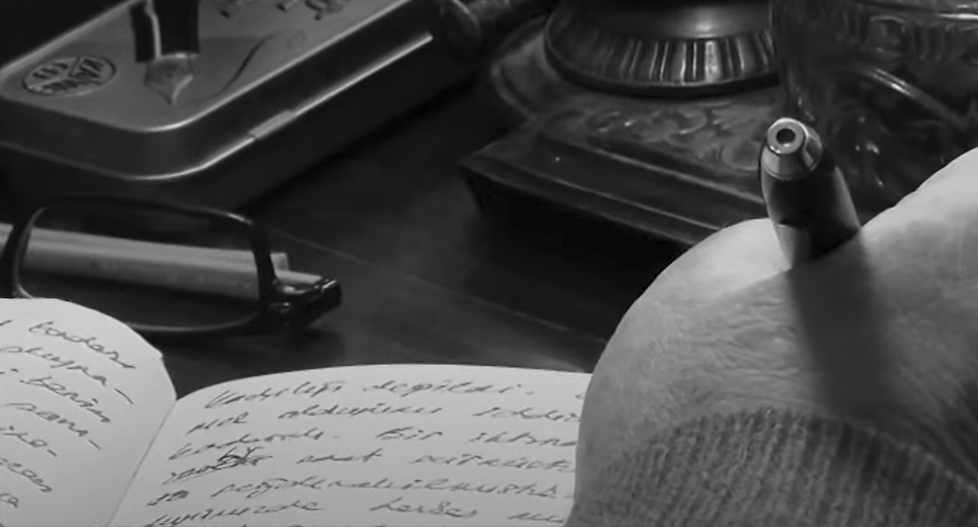
Mario Levi, writing in his notebook with a fountain pen from his collection.
A Lonely Man: Jacques Brel
In his first book, written in 1986, Mario Levi describes the life and art of Belgian singer, composer, actor, and director Jacques Brel, a man of sadness. This book, written by Mario Levi based on his university graduation thesis, is a "biography" but a "novelistic biography". I recommend you to read this novelistic biographical review book, in which you can find an interview with Jacques Brel, Mario Levi's explanatory notes on this interview, translations, and interpretations of Brel's songs in French.
Before and after “Istanbul was a fairy tale”
I have drawn a road map for you, going back from 1999, when I read Mario Levi's novel "Istanbul Was a Fairy Tale", which I see as a milestone in his literary empire, to his first book. There is also a collection of works he has produced after his novel "Istanbul Was a Fairy Tale": It Was a Summer Rain (1999), Amusement Park Closed (2005), Where Were You When Darkness Falled (2010), Photos of Istanbul in Me (2010), I Made You a Sponge Cake (2013), There Was Departure in This Play (2015), Loves in One Sentence (2016), What We Saw, What We Didn't See -1 A Friday Wind Kadıköy (2019), What We See, What We Cannot See 2 This Tuesday and Every Tuesday – Şişli (2020) Tangent Lives 1 - Sunflowers Look at a Loneliness Every Night (2022).
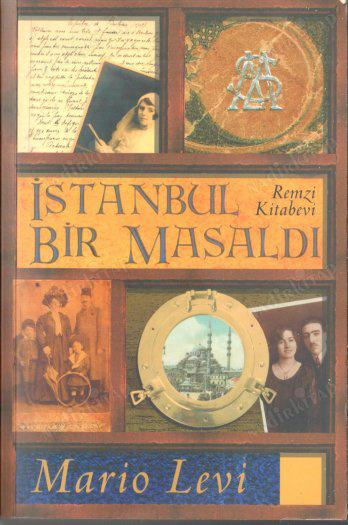
“Istanbul Was a Fairy Tale” book cover
Characteristics a writer should have and an epilogue
I watched all the speeches and interviews Mario Levi had on the internet after his death. I tried to understand my author, whom I admire, not only with what he wrote but also with what he spoke in his own voice. I made a list of Mario Levi's favorite authors, read what those authors wrote, and read some of the books he read that I had not read. I chatted with Mario Levi's sentences day and night and this article emerged. Maybe one day I'll have the opportunity to read the handwriting he wrote in a notebook with a fountain pen, who knows?
I leave with you the long answer given by our legendary writer Mario Levi to the question "qualities a writer should have".
“There was an author stereotype in old Yeşilçam films. He lives in a mansion or a waterside residence, and he has a silk dressing gown and a scarf, so he is a fan-fin-fon person. This is not an author. The author principally is a person who exists in life. He is both involved in life and observes others. He does these to see those who are different from himself and to see the person inside himself. Being in life to the fullest. On the other hand, an author is someone who reads a lot. He is someone who improves himself by reading. Reading is very important, reading a lot is very important. All that the author goes through is intended for writing. He has novels and stories to write somewhere in his mind at many hours of the day. A writer has two lives: 1. The life he lives 2. The life in his mind. He has to live with both. I had seen in a movie, after Anais Nin and Henry Miller had their stormy love affair, Anais Nin says to Henry Miller: "We lived the books we will write in the future with you."
With friendship from Bibliobibuli...
Related News












